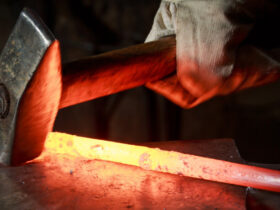The hex key manufacturer plays a pivotal role in the world of do-it-yourself (DIY) projects, providing an essential tool for homeowners, craftspeople, and handymen. This guide offers an in-depth look into hex keys, delivering valuable insights that will benefit all individuals involved in DIY.
Table of Contents
- Demystifying Hex Keys
- The Art of Manufacturing Hex Keys
- Practical Applications of Hex Keys
- Choosing Your Hex Key Manufacturer
- Hex Keys: Looking Towards the Future
1. Demystifying Hex Keys
Hex keys, also known as Allen wrenches or Allen keys, are simple yet versatile hand tools used predominantly for driving bolts and screws with hexagonal sockets. They are a staple in both professional workshops and home DIY settings.
- Design and Functionality: The typical hex key is a small, L-shaped instrument made from high-strength steel. One end fits into a hexagonal socket in a bolt or screw, while the other provides leverage for turning. This design’s simplicity enables strength and durability, attributes every hex key manufacturer strives for.
- Size Spectrum: Hex keys come in a variety of sizes to suit different bolts or screws. Sizes can range from a tiny 0.7mm key to larger 10mm versions. The size is usually determined by measuring across the flats of the hexagon, ensuring a precise fit every time.
2. The Art of Manufacturing Hex Keys
The production process of hex keys involves several critical steps, each contributing to the final product’s quality and resilience.
- Material Selection: Most hex keys are made from high-grade tool steel. This material is selected for its strength and wear resistance, ensuring the tool can endure repeated use. Stainless steel, chromium-vanadium steel, and carbon steel are some materials commonly used by a hex key manufacturer.
- Cutting and Shaping: The steel is cut into lengths corresponding to the desired size of the hex keys, then heated and shaped into the iconic L-shape. The ends are machined into a hexagonal shape, matching the size specifications of the key.
3. Practical Applications of Hex Keys
Hex keys have a wide range of uses, from assembling furniture to repairing bicycles, thus making them indispensable in various areas.
- Furniture Assembly: Hex keys are frequently used in furniture assembly. Many flat-pack furniture kits include a hex key, thanks to the tool’s simplicity and user-friendly nature.
- Bicycle Repair: Hex keys are also commonly used in bicycle repair. Whether it’s adjusting the seat height or tightening the handlebars, a hex key is often the tool of choice.
4. Choosing Your Hex Key Manufacturer
Selecting a reliable hex key manufacturer is crucial in ensuring you get a quality product.
- Materials Used: A good hex key manufacturer should use high-quality materials in their production. Look for manufacturers who use high-grade steel, which guarantees durability and longevity.
- Manufacturing Process: The manufacturing process can also give you insights into the quality of a hex key. Manufacturers who invest time in properly shaping and finishing their tools likely produce a superior product.
5. Hex Keys: Looking Towards the Future
As technology evolves, so does the humble hex key. Here’s what we might expect:
- Ergonomic Designs: With increasing awareness about ergonomics, hex key manufacturers are starting to design tools that are easier on the hands and wrists. Expect hex keys with curved handles and rubberized grips for added comfort.
- Multi-tool Integration: Another trend is the integration of hex keys into multi-tools. These handy devices combine several tools into one compact unit, making them a popular choice for those needing to carry a variety of tools.
In conclusion, whether you’re a homeowner, craftsperson, or handyman, understanding hex keys is invaluable. From their manufacturing process to their numerous applications, these small but powerful tools play a significant role in various DIY projects. By choosing a quality hex key manufacturer, you’re investing in a tool that’s built to last.












